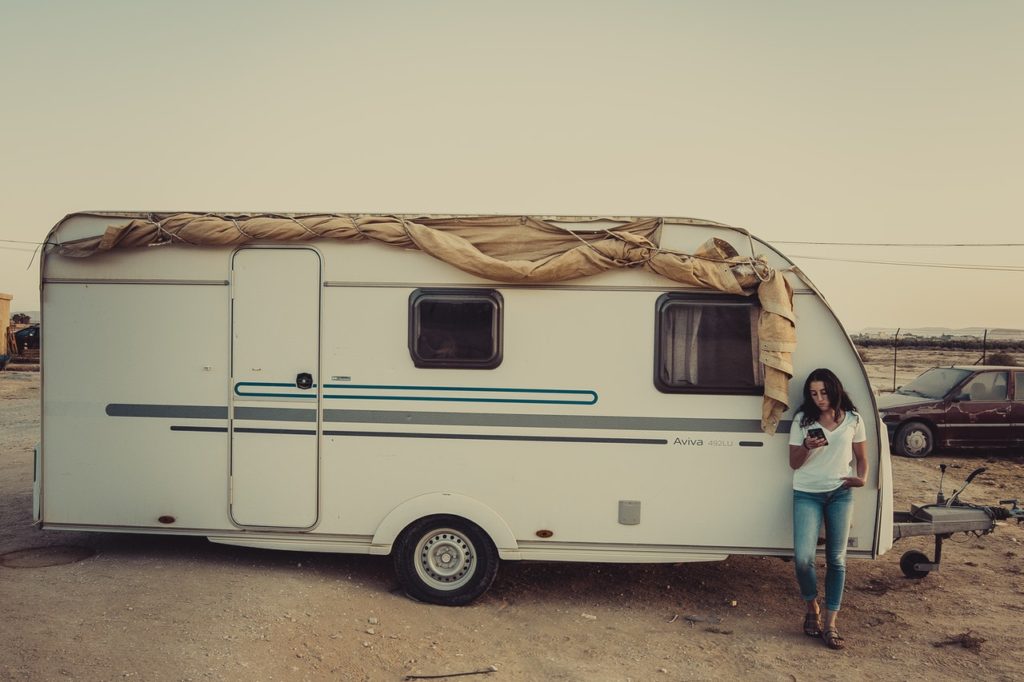Domestic travel will mostly see a boom as the restrictions around the coronavirus begin to ease. Countless individuals being cooped up in their homes for extended periods of time is sure to spark some yearning to get out and travel. With different countries implementing travel bans, going on long road trips appears to be the next best thing.
Being able to live an active outdoor life has become even more appealing now more than ever. Many believe that the coming years will present a significant surge in either recreational vehicle traveling or tiny house living. Regardless of the decision you make, both come with their fair share of pros and cons.
RVs or Tiny Homes?
The appeal of living and traveling in a tiny house or an RV is undoubtedly appealing. There are a number of reasons why individuals would want to choose either of the two when aiming for a lifestyle more akin to the outdoors. This could range from affordability, sustainability, room for personalization, and the like. Either way, it will definitely ignite an individual’s sense of wanderlust.
Living in either an RV or tiny house is not really a one-size-fits-all type of situation too. It is also just as important to take note of the key differences they might pose. How much electrical repair and maintenance does each of them need? Do they provide enough privacy for a life on-the-go? These are just some questions to address when going for this kind of lifestyle.
Mobility
It’s essential to identify the kind of flexibility you’ll be looking for once you get to the outdoors. Will you be camping there for an extended amount of time or just passing through? The mobility that your “house-on-wheels” offers plays a big part in the type of traveling you’ll be doing.
Generally speaking, RVs are more ideal for constant traveling since that’s their main design function. It allows you to feel like you never need to get out of the comforts of your own home to truly experience the outdoors while on the road. In terms of regulations per city, which can vary, motor homes are also more widely accepted.
Tiny homes, on the other hand, are not at all that dynamic. Although a majority of these houses are built on trailer beds with wheels, it is still highly immobile. Given that they are built to serve as actual houses, they tend to be heavier and harder to maneuver. This particular design feature is not ideal to withstand the stress of longer road trips.

Feeling of Home
A key feature that travelers often look for in either a tiny house or an RV is the homeyness that they can exude. Of course, you’d still want to feel cozy and at ease even though you’re in the midst of the wilderness.
Aesthetically, tiny houses are able to offer more avenues for owners to personalize. Designing specific spaces to provide comfort can go a long way. A semblance of familiarity within a home can be vital when going out to visit unfamiliar places. Tiny homes also tend to be better insulated compared to RVs so accommodating a particular climate is easier.
Motor homes are often taken just as they are. Most of the furnishings installed are stationary to minimize the risk of things toppling over while on the road. This particular feature, albeit safe, sacrifices the ability for customization. It also significantly limits spaces that could otherwise be utilized for different uses.
Economy and Sustainability
An active outdoor lifestyle is not really for everybody. It usually involves investing a lot in maintenance needs and similar costs. It also requires a certain degree of self-sufficiency and self-containment, especially within the context of a pandemic.
The global tiny house market is expected to grow substantially in the post-pandemic era. Given the countless innovations in its environmental efficiency, consumers will most likely be appealed to purchase these types of properties of their own. An opportunity to live off-the-grid is one of the defining features of tiny houses.
Building these tiny homes, however, is not cheap. Builders often ask for almost double the cost per square foot since resources for construction are used less efficiently compared to if they were to build regular houses.
RVs are significantly cost less. There are numerous second-hand motor homes on the market that have been barely used. Essentially giving better returns on your investments. As opposed to tiny homes, however, most RVs cannot sustain an off-the-grid lifestyle. At the end of the day, these are still vehicles that consume fuel and require connection to generators for certain features to function.
Choosing between one or the other is ultimately dependent upon the individual and the purpose for which they will be used. Suffice it to say, once the pandemic has come to pass, rekindling with the outdoors will surely feel all the more necessary.

